 Petzlover
Petzlover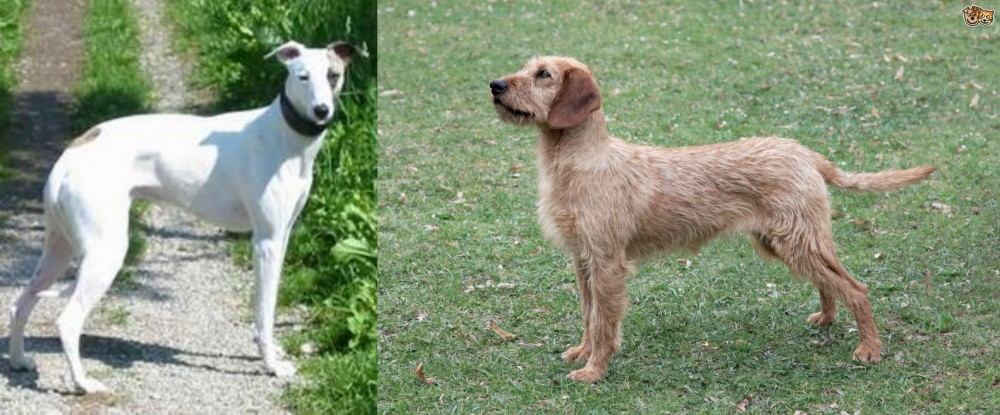 Kaikadi is originated from India but Styrian Coarse Haired Hound is originated from Austria. Kaikadi may grow 8 cm / 3 inches shorter than Styrian Coarse Haired Hound. Both Kaikadi and Styrian Coarse Haired Hound are having almost same weight. Both Kaikadi and Styrian Coarse Haired Hound has same life span. Both Kaikadi and Styrian Coarse Haired Hound has almost same litter size. Kaikadi requires Low Maintenance. But Styrian Coarse Haired Hound requires High Maintenance
Kaikadi is originated from India but Styrian Coarse Haired Hound is originated from Austria. Kaikadi may grow 8 cm / 3 inches shorter than Styrian Coarse Haired Hound. Both Kaikadi and Styrian Coarse Haired Hound are having almost same weight. Both Kaikadi and Styrian Coarse Haired Hound has same life span. Both Kaikadi and Styrian Coarse Haired Hound has almost same litter size. Kaikadi requires Low Maintenance. But Styrian Coarse Haired Hound requires High Maintenance
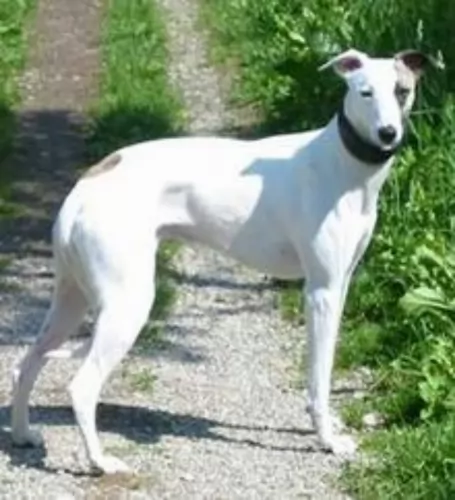 The Kaikadi or Kai Kadi is a terrier dog, hailing from India. Not much is available on the history of the dog, but today you won't easily find original Kai Kadi in India. This is because they have essentially been mixed with stray dogs of India as well as Pariah.
The Kaikadi or Kai Kadi is a terrier dog, hailing from India. Not much is available on the history of the dog, but today you won't easily find original Kai Kadi in India. This is because they have essentially been mixed with stray dogs of India as well as Pariah.
It is for this reason that the dog isn't recognized as a standardized breed by any of the leading kennel clubs.
 The Styrian Coarse Haired Hound is a German hound, a medium sized breed that was found to originate in Styria in Austria. It was bred to be a boar hunting scent hound in the mountains. The breed is an Austrian Bracke and one of the largest. In the 1870’s the breed was developed by Karl Peintinger to get a hardy, rough coated hunting dog. Peintinger took the Istrian Hound and an old type scent hound of Hanoverian and continued selective breeding until he got the dog he wanted.
The Styrian Coarse Haired Hound is a German hound, a medium sized breed that was found to originate in Styria in Austria. It was bred to be a boar hunting scent hound in the mountains. The breed is an Austrian Bracke and one of the largest. In the 1870’s the breed was developed by Karl Peintinger to get a hardy, rough coated hunting dog. Peintinger took the Istrian Hound and an old type scent hound of Hanoverian and continued selective breeding until he got the dog he wanted.
The breed is still used to hunt boar and track wounded animals. They work in high altitudes and rough terrains. They were not created to be companion animals and most of them are still working dogs. They do not make great house or family pets. Because of these circumstances, the breed is rare today.
Sometimes you will see the breed called the Peintinger Bracke after its developer. The Austrian Kennel Club recognized the breed in 1889 and the Federation Cynologique Internationale as a scent hound. The Styrian Coarse Haired Hounds were next recognized in 2006 by the United Kennel Club in North America, but not the AKC – American Kennel Club. There are many smaller kennel clubs and organizations for the breed as well many hunting clubs.
As mentioned, the breed is the largest of the Austrian Brackes. They are one of the three breeds included in the Grand Brackes. The name comes from the fact that all these dogs were developed for hunting in the Austrian mountains. They are pretty much unknown in the rest of the world. They thrive in the harsh climates of the Austrian mountains.
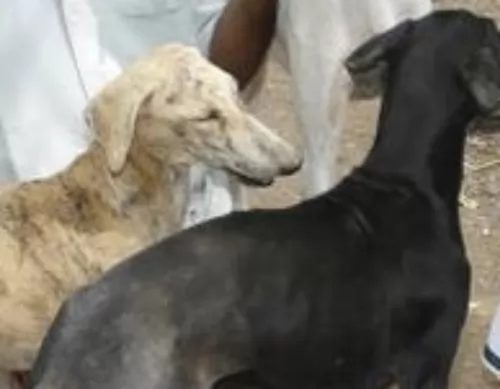 These dog have always been used for hunting, guarding and herding in India and today he makes a good watchdog, watching over his human family.
These dog have always been used for hunting, guarding and herding in India and today he makes a good watchdog, watching over his human family.
It's not a large dog though and he stands at roughly 35 to 45cm in height and weighs 17 to 21kg. He is lean and muscular, looking similar to the Italian Greyhound or Whippet.
He has a short smooth coat and the color can be patterned white, tan and black. The head is long and thin, as are the legs, and his tail is long and thin too. The floppy ears stand erect when alert.
The Kaikadi is an affectionate, alert, energetic dog. He won't do well in a city environment with a tiny garden as he requires a large garden to run in.
He is a dog that will need to be trained and socialized if you want him to be obedient and to get on well with children in the home as well as pets.
He can be a fairly quiet, docile dog inside but outside when there is a game to be had, he becomes lively and animated. They are quite sensitive, so while they get on well with children in the home, he won’t respond well to large families with lots of rowdy, undisciplined children as it makes him anxious.
 The Styrian Coarse haired Hound is well muscled, medium sized and lithe. They run easily on all types and levels of terrain. Their coat is rough and harsh, giving the breed part of its name. They can tolerate both extremes of the climate temperatures. They are strong and confident dogs wearing a very serious facial expression. These guys are all about the job – the hunt. Their prey drive is extremely high.
The Styrian Coarse haired Hound is well muscled, medium sized and lithe. They run easily on all types and levels of terrain. Their coat is rough and harsh, giving the breed part of its name. They can tolerate both extremes of the climate temperatures. They are strong and confident dogs wearing a very serious facial expression. These guys are all about the job – the hunt. Their prey drive is extremely high.
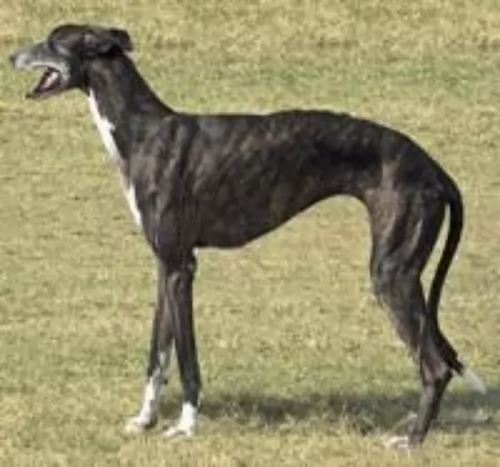 Your Kai Kadi loves running and playing outside, after all he has always been a hunting dog. He will love to spend time with you outside playing.
Your Kai Kadi loves running and playing outside, after all he has always been a hunting dog. He will love to spend time with you outside playing.
The Kaikadi is a low maintenance dog too. Provide your Kaikadi with everything that makes a dog happy and in exchange you’ll get yourself a loyal, loving pet who wants to be your friend.
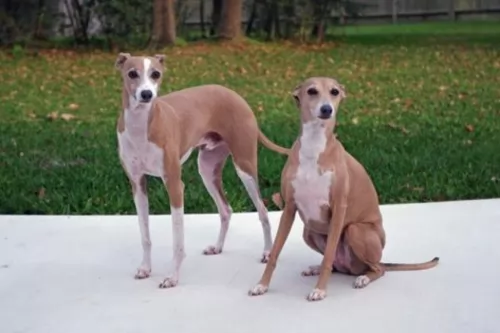 When you’ve got a Kai Kadi, make sure you understand some of the health risks that come along. This is a healthy dog breed so you’re not likely to have much going wrong with him, but you need to know that he can get sick and then you need to have the name of a good vet for medical treatment -
When you’ve got a Kai Kadi, make sure you understand some of the health risks that come along. This is a healthy dog breed so you’re not likely to have much going wrong with him, but you need to know that he can get sick and then you need to have the name of a good vet for medical treatment -
A sudden drop in blood sugar, which is many times brought on by stress, can make your dog lethargic and even have slight tremors in the face. It could be a hypoglycemic attack. See the vet immediately.
The pancreatitis can become inflamed and your dog could be vomiting, have diarrhea and have abdominal pain. There are quite a few things that can cause pancreatitis such as obesity, infection as well as stress.
 The breed is fairly healthy and isolated from crossbreeding. They are susceptible to several major conditions.
The breed is fairly healthy and isolated from crossbreeding. They are susceptible to several major conditions.
• PRA or Progressive Retinal Atrophy = a group of degenerative, genetic eye diseases the cause blindness over time.
• Bloat – most large dogs suffer from this and not so much a medium breed like this one, but it is a condition that their energy levels and work ethics could lead to. Fatal if not treated immediately.
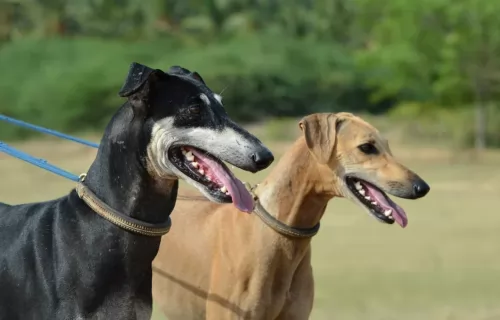 Owning a dog is a responsibility, requiring you to look after a living being just like you would any family member of yours, otherwise why get a dog in the first place?
Owning a dog is a responsibility, requiring you to look after a living being just like you would any family member of yours, otherwise why get a dog in the first place?
You may want a dog for watchdog purposes, but as a living creature, it is important to develop a relationship with your pet and to show him that you love and appreciate him.
There are many things to do to ensure you have a healthy, happy 4-legged canine member in your household
Make sure he has fresh, cool water available to him around the clock.
Provide him with a warm, dry place to sleep.
Provide him with wholesome food to maintain health. There are many excellent commercially manufactured foods on the market. Buy one according to the size and energy levels of your pet. Try to sometimes add cooked home-made food into his kibble such as cooked chicken, brown rice and vegetables as well as some raw meat from time to time. This diet is guaranteed to keep your pet mentally and physically well.
Check your pets nails, ears and eyes regularly. He should be checked for fleas and ticks when you brush him twice a week. Have him examined by a veterinarian as soon as you suspect something is amiss with him. Keep him up to date with his vaccinations.
The Kaikadi is an energetic dog so make sure that you provide him with the opportunity to be exercised. Take him on walks or hikes, play ball and rope games with him and go swimming with him to ensure he remains lean and muscular.
Have him trained and socialized as it takes off the rough-edges of a dog.
 1Feeding the puppy – Feed this very active breed a high quality dog food for medium sized dogs. Feed puppies 3-4 times a day a total of ¾ to 1 cup.
1Feeding the puppy – Feed this very active breed a high quality dog food for medium sized dogs. Feed puppies 3-4 times a day a total of ¾ to 1 cup.
2.Feeding the adult - feed this very active breed a high quality, high protein diet. Feed the adult 1-2 times a day a total of 1.6 cups of dry food.
4. Games and Exercises They are energetic, athletic and extremely agile. They are muscular and lithe and need a lot of exercise. The is a dog that can travel across rough terrain for hours at a time. They are tenacious hunters and need an outlet for that prey drive.
They need space and time to run. A large yard is great because you don’t want to take them to a dog park. Give them a lot of toys and puzzles. They excel at lure coursing, field trials and hunting trials. Their sense of smell makes them great at nose work and they like agility, tracking and rally obedience.